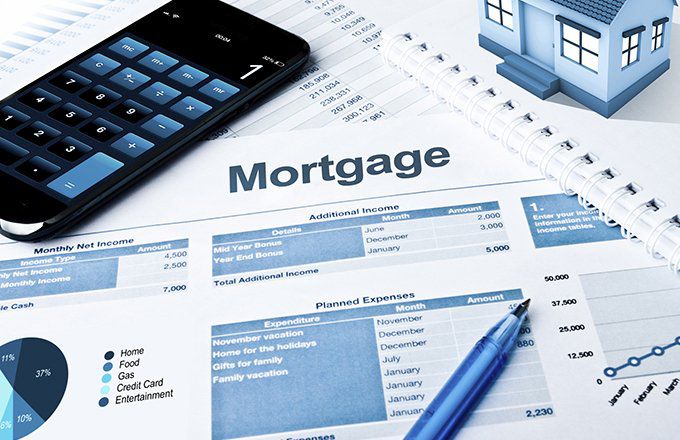
Getting a Mortgage as a Freelancer: 3 Things to Consider
Freelancers who will be getting a mortgage should prepare their finances, paperwork, and credit scores.
Are you a 1099 worker? If so, there are a few things you need to know about getting a mortgage. Whether you’re a part of the gig economy or are a full-time freelancer, how you will qualify for a mortgage may look a little different compared to borrowers who are salaried employees.
Here is an overview of what’s different about getting a mortgage as a freelancer, and a look at some of the extra steps you will need to take when applying for your loan.
Getting a Mortgage as a Freelancer: Things to Know
While the freelance lifestyle comes with many benefits — like increased freedom and flexibility — some independent contractors may feel like their career makes it more difficult for them to take out a mortgage loan.
While there are additional steps that need to be taken to provide lenders with adequate information to qualify your borrowing capacity when you’ve been working as a freelancer, the most important thing to know is that the process can be streamlined if you’re prepared with the right documentation.
The reason why freelancers sometimes have difficulty getting a mortgage is because, generally, lenders view freelancers as higher-risk borrowers.
This is because freelancers typically have a more volatile source of income compared to salaried workers. Freelancers depend on the continual employment opportunities from their clients, which may not always lock in the same financial security as someone who is contracted-in with their job.
As a result, lenders usually like to take additional steps to ensure that they are not going to incur a loss by lending money to a freelancer for the purchase of a home. This is good news for home buyers that are freelancers. As long as you are able to prepare your finances and ready your documentation, you should be able to get a mortgage.
Freelancers, Here’s Your Mortgage Preparation Checklist
If you’re a freelancer thinking about buying a home soon, follow these steps to help you with getting a mortgage.
#1. Clean Up Your Finances
As you prepare for getting a mortgage, the first thing you want to do is clean up your finances.
When you apply for a mortgage with a lender, the first thing they will look at is your creditworthiness and overall financial situation. You’ll want to make a good impression, so make sure that your finances are cleaned up and ready to be combed through by a loan officer.
Remember that lenders are looking for any red flags that may hint at your eventual default on the loan, such as low credit scores, racked-up credit cards, and depleted savings. These are the first things you should address as you work toward getting a mortgage.
A great place to start is your credit score. Generally, mortgage lenders like to see borrowers with a credit score minimum of 620. This is the credit score requirement for many loan types, and is considered as “fair credit.” If your credit score is over 670, you’re considered as having “good credit.”
If your credit score needs some work, spend time building positive credit by:
- Paying down long-standing debts
- Reducing your debt-to-credit ratio
- Pay all bills on time, or in advanced
- Clean up any errors that may be negatively affecting your credit report
- Avoid making large purchases on credit lines
Next, look at your bank accounts — particularly your savings account. Having a robust savings account can help you prove to lenders that you are financially responsible and will be able to pay off the loan over time.
#2. Get Your Paperwork Ready
Here’s a checklist for the paperwork that lenders typically want to see when underwriting freelance workers:
- Personal tax returns for the last two years
- Business tax returns for the last two years
- Profit and loss statement
- A spreadsheet with the balances of all of your existing bank accounts
Besides these documents, it can be helpful to provide your lender with additional proof of financial stability. This may vary, so speak to your lender for more information.
#3. Find the Right Lender and Agent
If you’re getting a mortgage as a freelancer, you’ll definitely want to form the right real estate team that’s aware of your situation and is ready to help you achieve success.
It’s always a good idea to interview mortgage lenders in advance to find the right lending institution for you, but freelancers should take extra care during the lender shopping process.
You’ll want to find a lender that has experience working with freelancers and is ready to help accommodate your needs and guide you through the underwriting process. You also should look for lenders that are open to offering you preferable loan terms based on your eligibility and ability to provide the necessary documentation.
When it comes to your real estate agent, you should also hire someone who understands your situation as a freelancer. Your agent should be aware of any financial considerations that may impact your ability to obtain a loan, as disturbances with lending can impact your ability to move forward with the escrow process.
For more information on the process of getting a mortgage, browse through other articles written by RealEstateAgents.com.






